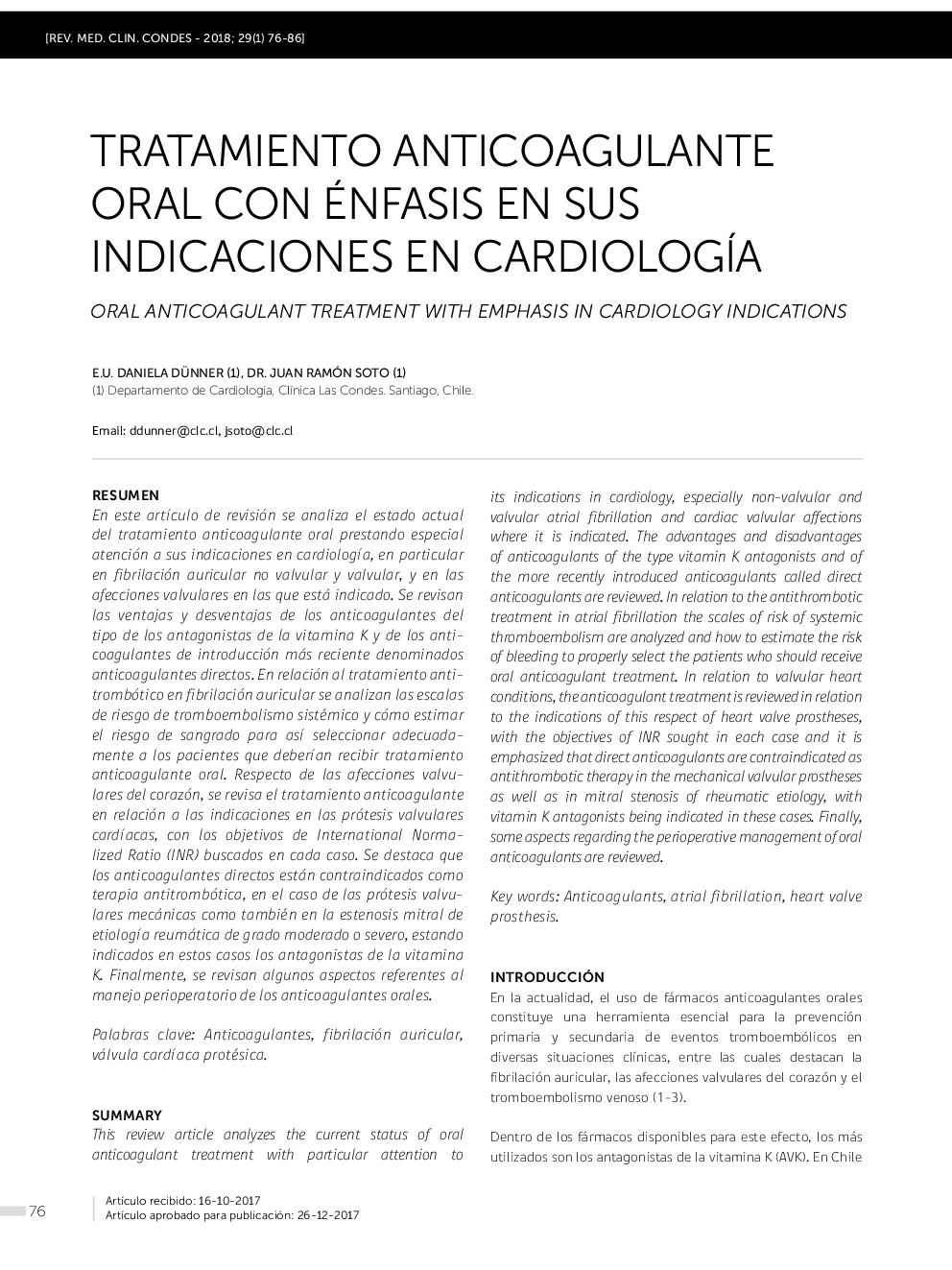| Article ID | Journal | Published Year | Pages | File Type |
|---|---|---|---|---|
| 8767459 | Revista Médica Clínica Las Condes | 2018 | 11 Pages |
Abstract
This review article analyzes the current status of oral anticoagulant treatment with particular attention to its indications in cardiology, especially non-valvular and valvular atrial fibrillation and cardiac valvular affections where it is indicated. The advantages and disadvantages of anticoagulants of the type vitamin K antagonists and of the more recently introduced anticoagulants called direct anticoagulants are reviewed. In relation to the antithrombotic treatment in atrial fibrillation the scales of risk of systemic thromboembolism are analyzed and how to estimate the risk of bleeding to properly select the patients who should receive oral anticoagulant treatment. In relation to valvular heart conditions, the anticoagulant treatment is reviewed in relation to the indications of this respect of heart valve prostheses, with the objectives of INR sought in each case and it is emphasized that direct anticoagulants are contraindicated as antithrombotic therapy in the mechanical valvular prostheses as well as in mitral stenosis of rheumatic etiology, with vitamin K antagonists being indicated in these cases. Finally, some aspects regarding the perioperative management of oral anticoagulants are reviewed.
Keywords
Related Topics
Health Sciences
Medicine and Dentistry
Medicine and Dentistry (General)
Authors
E.U. Daniela Dünner, Dr Ramón Soto,
